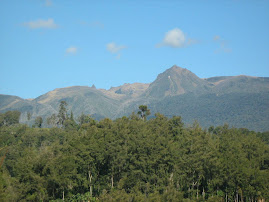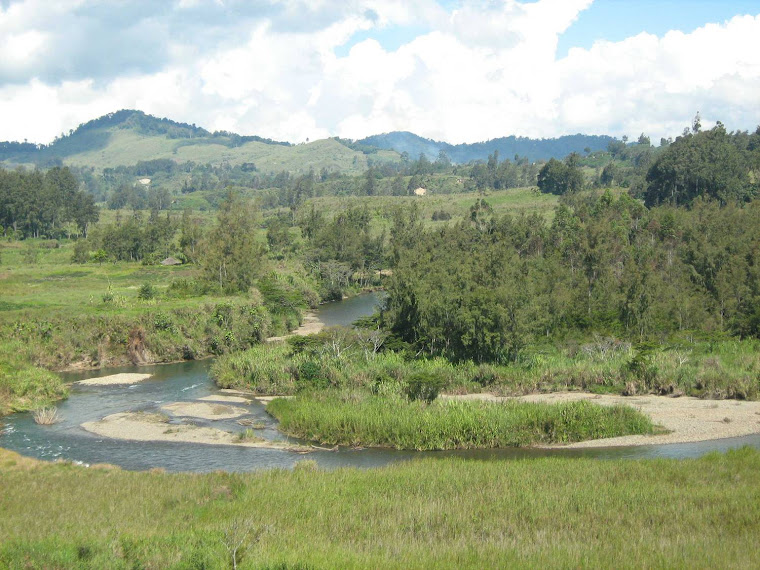 Studying in China is an adventure
Studying in China is an adventureBy Mathew Yakai in Changchun
CHINA is an ideal country for Papua New Guineas to acquire academic qualifications and impart their knowledge upon returning.
However, many see China as both for academic purposes and adventure. For advanture, it is undeniable given China’s 5000 years old history.
For Tonny Kepou, a student at Dalian University of Technology is no exception. Leaving his home comfort, mum and dad including all his friends, Tonny left for China, particularly Dalian to do his masters degree in Management Science and Engineering (Project Management) in August 2007.
Currently, he is studying Chinese language, for a year and then will continue into his major.
Tonny, is amongst other PNG students (including this writer) who left for various studies under the Chinese Government Scholarship. The scholarship is also awarded to students from other developing countries.
“Studying in China is an adventure in an environment of 1.3 billion people influenced by its rich culture, language with modern influence from globalisation.”
Despite its strong tradition, Tonny is impressed that China is growing very fast economically as depicted in his trip, though China is a developing country.
He questions as to how PNG and rest of the Pacific island countries can learn from China’s rapid economic growth, while retaining their unique traditions and cultures.
“China has grown despite being once an impoverished country. This is an excellent case study for the people from the Pacific (PNG included) who has a diverse culture with the rapid influence of globalisation,” Tonney observed.
From his experience, Tonny suggested that Pacific island countries and PNG with diverse culture must accommidate globalisation trend within their economic and political condition, instead of allowing globalisation to bring more problems into the island countries.
Tonny’s comment is debatable and in a sense controversal, since the Pacific island countries have had past experiences of foreign influences.
Tonny had an interesting three hours trip from his host Dalian City to Dandong City, immediately close to North Korea, the country USA is allegeing of possessing nuclear chemicals that are harmful to humanity.
Dandong is located alongside the Yalu River and in the southeast of Liaoning Peninsula, with the Yellow Sea in the South, and Dalian city in the southeast.
It borders on Anshan in the west, Benxi in the north, and the Jilin Province in the northeast. She faces the city of Sinuiju of the Democratic People's Republic of Korea across the Yalu River.
With the land area of 14, 950 square kilometers, the total population of Dandong is 2.4 million, including 0.7 million of which are urban people. Dandong is the biggest Border City in China.
Dandong is advantageous in geographic location for it is along Yalu River, along Yellow Sea and the border. She sits on the central belt of Northeast Asia, with 210km long borderline to the Korea Peninsula.
“Road conditions throughtout the trip is good and we had an excellent journey. Basic services were obviously received by rural farmers dwelling because most have TV antennas, solar hot water panels, etc on their roof,” said Tonny
Tonny said the Yalu river separates China and North Korea.
“Accessing North Korea today from China can be through the Sino-Korean Friendship Bridge. It is built next to the ‘old bridge’ damaged during the 1950s Korean war.. The bridge is located in the city centre.”
The Sino-Korean Friendship Bridge runs parallel with the old bridge demolished by the war that unfortunately used by the locals between the two countries to trade goods and services.
It is the original old bridge linking the North Korean city of Sinuiju. In 1950, during the Korean War, American troops bombed the original steel-span bridge between the two countries.
Today what remains is the bridge running midway into the Yalu river towards North Korea. The remains of the bombing and the remains of metal pockmarks still on the original bridge which ends abruptly midriver.
About 25km, northeast of Dandong city, sleeps this steep, restored stretch of the Great Wall, built during the Ming dynasty, parallels the current North Korean border.
At one point, marks an extremely narrow part of the river between the two countries – about 20 metres.
“We also visited the Toger Mountain Great Wall Museum at the bottom of the Great Wall. We also visited the 1950 North Korean War museum. The museum was built to commemorate U.S aggression” Tonny recalls.
Inside, one can find remains ranging from statistics to soldiers’ clothes, the war remains, letters from soldiers to their families, and so fort. All are well kept in the museum for visitors to see.
Tonny may have been the first Papua New Guinean, hopefully the first Pacific Islander to go to the border of China and North Korea. And definitely, one of the few foreigners.
What he saw is an experience he will never forget. The same is happening with most of the PNG and Pacific Islands students studying in China. They travel the vast land, meet the smiling faces, sleep and eat in their houses, though communication is a hinderance.
Tonny’s trip implies many good things, but importantly, he went there as a student ambassador, representing PNG. in every personal contacts with the people.
From my experience of meeting Chinese, they thing that I am an African, or a Afro-American because of my skin color. Yet they do not know where Papua New Guinea is located on the map.
My April 5th bicycle trip out of my home Changchun city, also compelled me to meet a lot of Chinese. They are kind, and want to know more about my beautiful country, and that makes me to be a proud Papua New Guinean.
The Chinese Government came up with a good option to bring foreign students, including Papua New Guineans to China, to have a hand on experience of China.
What we see at Boroko Chinese restaurants, or up in Mt Hagen, or the 2006 riot in Honiara are very unfortunate. These Chinese have to live, eat and do business behind barb wires. They simply respond to PNG’s bad attitude.
I find the people in China to be very friendly, and wlecoming. I also met few in Port Moresby, who are also kind and welcoming.
When I see a Chinese, I see a human being, I do not judge him by the color of his skin, or his origin, or Confucius believes. The Chinese live, work and interact just like any one of us. This must be understood by rest of Papua New Guineans, Pacific Islanders and ethnic Chinese themselves.
For Tonny, I am happy that he is learning Chinese language, apart from his major degree. That is what rest of PNG students are doing now.
We believe that other potential students who read Tonny’s experience will join us in China to undertstand the 5000 years old history, and accept the ethnic Chinese as humans.
This will inevitably build “people to people diplomacy” and eventually strengthen Beijing and Port Moresby’s bilateral relationship。
Note: Asia-Pacific Perspective: China + looks at Chinese society, culture, economy, governance and China’s role within the Asia Pacific region and the world over. It mainly focuses on how PNG can learn from China’s experience. The writer is a PNG student in China.









1 comment:
Hi Mathew,
Read Malum's story about your adventure in China and it must be quite and adventure. Have added a link to your blog on mine (http://www.trupela.com) which is a blog about my adventures in PNG as a volunteer.
Warm regards,
R
Post a Comment